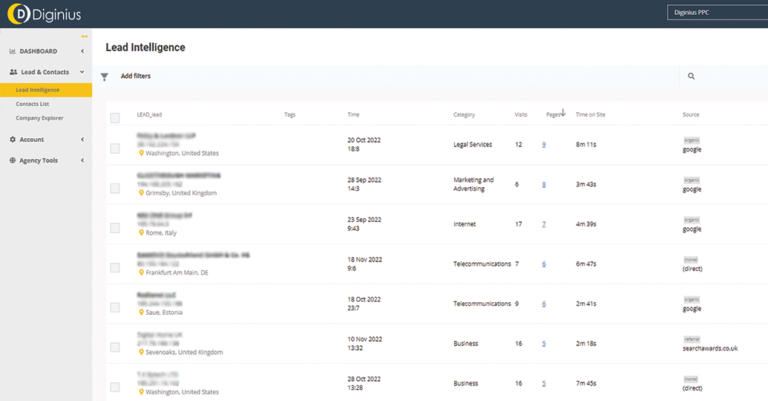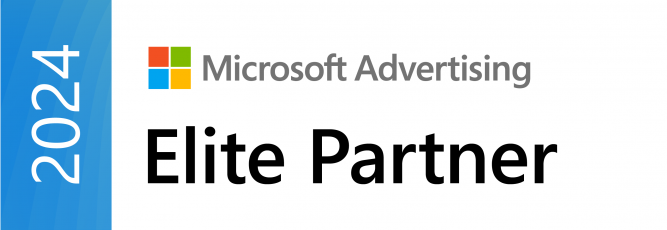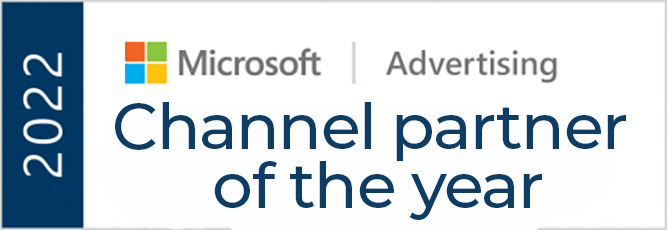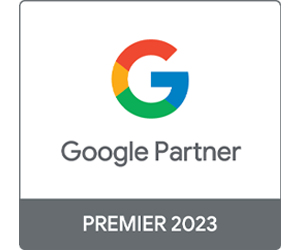If you’re looking for new ways to find prospective B2B sales opportunities, reverse IP tracking could be the answer. Most website visitors will browse but won’t call or complete a form – unless you have valuable gated content on your site. So how can you identify the companies visiting your site and what pages they are viewing to make sure their visit doesn’t go to waste?
Reverse IP tracking is a method for identifying the IP address of visitors to your website and then using that information to understand which organisation they are associated with as well as their geographical location. This web tracking process provides sales and marketing teams with valuable information to help qualify leads or weed out any that are not within the target market. The results can contribute significantly to an increase in the return on marketing spend.
IP addresses are unique identifiers for every device connected to the internet and typically take the form of four sets of numbers separated by full stops. Every website on the internet is hosted on a server which has its own unique IP address.
Standard IP lookups can provide basic geographical information such as country and region but are unable to provide much more.
The technique of reverse IP tracking uses specialised website visitor identification software to identify the IP addresses of all the websites or domains hosted under one IP address relating to a specific server. This is often used for security reasons: to monitor server activity and ensure that no unauthorised sites are being hosted on the server, to ensure that none are being compromised or to identify potential threats and malicious activity.
Although reverse IP tracking has traditionally been used for security reasons, there are significant benefits for B2B lead intelligence. These are just some of the ways in which the technique can be used by sales and marketing teams as part of their lead generation toolset:
By identifying companies visiting your website, you can determine whether they are potential customers, peripheral target audiences or just competitors looking for information. By understanding their geographical location or industry, you can also assign those prospects to the relevant sales teams in that country or sector for further follow-up.
By tracking the pages that visitors are viewing on your site, you can determine their areas of interest, providing rich information for a sales follow-up or marketing nurture programme. It is widely accepted amongst marketers that lead nurturing has been shown to lead to increased brand awareness and better conversion.
By extracting more information about visitors, marketers can obtain better insight into what content users are looking for as well as a view on the different areas of interest for specific buyer personas.
By analysing the times the visits occurred, you’ll have better insight into when your prospect is less busy or has potentially blocked out time in their diary to research these tools and services, therefore, they may be more receptive to a sales call or follow-up email.
By monitoring traffic on your competitor websites, you can view the top pages by organic search and identify interest in products or services similar to your own. You could then run a campaign to make them aware of your solution. But beware, competitors can also do the same to you!
The web tracking data provided can also assist web designers and developers in understanding visitor needs more accurately to provide web formats or languages preferred by site visitors.
Although reverse IP tracking can provide invaluable insights for sales and marketing teams, there are some potential issues to be aware of:
Since the technique can only rely on the IP address data to identify and track visitors to websites, it’s important to note that the data can be inaccurate. IP addresses can be shared (providing multiple IP addresses), dynamic or even proxy; in these cases, details about the user’s location or organisation may not be correct.
IP tracking is sometimes regarded as a nefarious business and an invasion of privacy, particularly if visitors are not aware that their data is being collected. In some countries, there may be local legislation to prevent the use of reverse IP tracking. Make sure you research thoroughly to ensure you are fully compliant with GDPR or other applicable privacy legislation in your geographical target markets.
Even if the data is correct, it’s important to understand it in the context of other information. For example, if someone from a particular company has visited your website, this does not necessarily mean that they are a potential customer. Care must therefore be taken in any follow-up sales or marketing activity. The data can also only do so much, and businesses must always be prepared to supplement data with a solid follow-up process to ensure maximum conversions.
Of course, only visitors to your site can be identified. There is no way to identify prospects who have not visited your site or who have done so by using proxy servers or a VPN. In addition, individual visitors cannot be identified, only their company or business.
Many businesses will use third-party website visitor identification software to assist with reverse IP tracking. However, these may not always be up-to-date, rendering the data unreliable. It is, therefore, essential to ensure you use a reputable solution such as the Diginius Insight platform.
The Diginius Insight Lead Intelligence tool uses analytics software to track the IP addresses of your website visitors as well as which pages and for how long. Where possible, details of the organisation are also included. Then, using additional Diginius services, this data can be enhanced with relevant contact information.

In addition, the software integrates data from a number of social media, PPC and browser platforms, including Google Ads and Microsoft Advertising. This provides information on the visit source (organic or paid), which keywords were searched if paid and the activity that followed, providing valuable data to your sales and marketing teams regarding the user’s search intent.
The Diginius difference is the ability to go much further than standard IP tracking with a full and single view of online activities, including social media, SEO and web analytics. This ensures that IP tracking data is not viewed in isolation, thereby overcoming some of the main disadvantages and providing sales and marketing teams with a fuller picture. In addition, the Diginius Company Explorer Tool is invaluable for account-based marketing as it allows businesses to identify named target organisations. The tool then identifies key contacts within those organisations – with all data being fully GDPR-compliant.
Overall, reverse IP tracking can be useful for online visitor tracking by providing additional insights into website behaviour for sales and marketing teams. However, to track visitors to websites, the data must be handled carefully and within the limits of data protection, and users should be aware of the potential limitations and drawbacks. As long as businesses minimise the risks and use IP tracking as part of a toolkit of several approaches in an overall lead intelligence strategy, then reverse IP tracking is a good starting point for sales and marketing data enrichment.







© 2024 Diginius Ltd. All rights reserved.

Chester Yang is the Microsoft Program Manager at Diginius with a background in economics and quantitative research.
At Diginius, Chester focuses on nurturing partnerships with PPC agencies and integrating marketing and sales solutions.